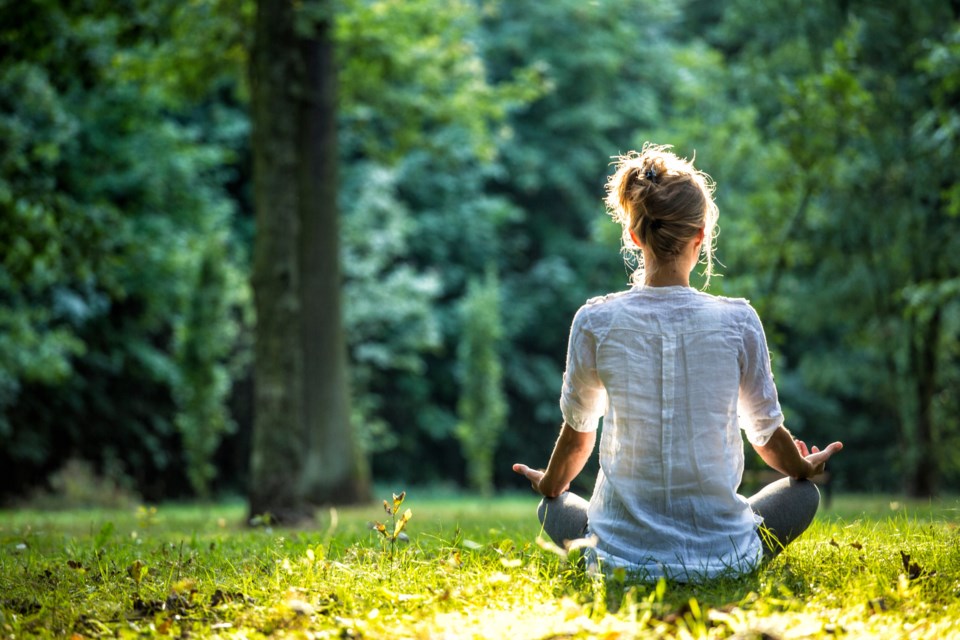You know the feeling you get when you’re sucked into a puzzle, or when you really get into a good book? That’s the relaxation that comes when you allow your mind to take its focus off the everyday stressors and enjoy a new, rewarding effort.
These important mental exercises can be anything from solving a brain teaser to focusing on a simple mind-body connection like counting your breaths. Mental exercise is just as important and satisfying as physical exercise for our overall well-being. It’s the equivalent of a nice long walk to stretch your legs.
We’ve put together a collection of mental exercises that can bring a calm relaxation to the end of your day, all while giving your mind a nice workout. Our tips fall under three categories: meditation, puzzles, and relaxation techniques.

Meditation
Meditation, regardless of type or style, has been scientifically proven to benefit mental focus and emotional health.
- Guided Meditations
Especially for those new to meditating, guided meditations are a great option. A “guide” will talk you through the process of meditating and offer suggestions for your focus. These meditations are often accompanied by music or calming ambient sounds like a burbling spring or quiet forest sounds. For a selection of free and topic-specific guided meditations, try an app like Headspace or a site like Mindful.org.
- Self-guided (or Unguided) Meditation
If listening to someone tell you how to meditate is not relaxing, then self-guided (or unguided) meditation is your ticket. Here are a couple of ideas to get you started on your self-guided practice.
One meditation technique is to count your breaths. Inhale, count one, exhale, count one, up to ten breaths. Then repeat. Set a timer for yourself so you can relax into the moment and into your breath.
- Walking Meditation
Walking meditation is a nice change of pace (literally) from seated meditation. In this type of meditation, you focus on the sensation of each slow step. Focus on the breath and the connection of your foot to the earth. This style is particularly effective in bringing together your mind and body in a calm, peaceful activity.
Puzzles
The variety of puzzles available today is just astounding--from table-filling jigsaws and paper and ink puzzle books to apps on your phone, there’s a puzzle out there to absorb any mind and give it the space to relax.
- Brain Teasers
Brain teasers used to come in a strip at the back of the newspaper, but they’re just as accessible even if you haven’t gotten a physical paper for years. Whether online or in a book or magazine, brain teasers are a great way to challenge your mind, inspire creativity, and build mental agility. Pick up your old favourites like Sudoku or a crossword, or try some of these individual brain teasers.
- Physical Puzzles
For those who relish working with their hands, physical puzzles offer that mental/physical connection. Pick up a Rubik’s cube or a puzzle box, and flip the puzzle over in your hands to work out its solution.

Relaxation Techniques
Relaxation techniques are designed to slow down your mind and sometimes bring awareness to your body or breath.
- Relaxation for Sleep
When trying to get to sleep, count backward from 500. Yes, it’s a large number, but that’s by design. You won’t be worried about reaching zero and having to start over. And it will take just enough focus to stay on track that you won’t slip into reciting a memorized set of numbers.
- Mental Body Scan
Start at one end of your body and mentally “check-in” with each body part on your way to the other end. For example, start at your toes and notice how they’re feeling. Move to your ankles, then calves, your knees, etc. For each spot, focus there just long enough to notice, then move on. When you’ve completed the whole body scan, see if it helped you relax. For another variation, tense and then relax the muscles in those body parts as you scan them. By the time you reach the end, you’ll probably feel much calmer than when you began.
These exercises are sure to help your mind settle in and find renewed calm. Pick and choose from these techniques, or try them all. No matter the combination, your mind and body will benefit from the relaxation.




